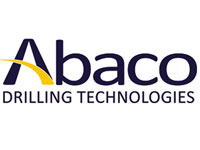AADE FMG Meeting
When: May 23, 2024 @ 1:30 PM to 4:00 PM
Want to SPONSOR the FMG Meetings? The cost is $600 for the calendar year. Click Here to Sponsor!
REGISTER HERE
DATE: Thursday, May 23, 2024 - 1:30 PM - 4:00 PM
Check in begins at 1 PM
Check in begins at 1 PM
LOCATION: Norris Conference Center-CityCentre (Elm Room), 816 Town & Country Blvd. Suite 210, Houston, TX 77024. Corner intersection of IH-10 West and Beltway 8. For additional driving directions & a map, check their website at: https://norriscenters.com/houston-citycentre-map/.
COST: Member: Free to attend / Non-member: $15
Non-members have the option to join as a member or renew your membership before registering, then the meeting cost will be free as well as all subsequent DTC meetings for 2024.
Program Topic: “Wellbore Stability & Geo-mechanics”
SPEAKERS
1. Shekhar V. Gosavi, Principal Borehole Management Engineer, ExxonMobil
Presenting – “Mud Requirements for Rock with Strength Anisotropy”
The talk will focus on experiences drilling through rock exhibiting strength anisotropy. Rock anisotropy is observed in many shales across the world associated with weak bedding laminations and leads to varying MW requirements based on angle relative to the bedding plane through them. In addition, most of these shales show high sensitivity to water content in the mud leading to chemical instability. The instability issues in such shale are many times attributed to invasion of the drilling fluids into micro-fractures along bedding planes leading to suggestion of reducing MW. It has been observed multiple times that this is incorrect hypothesis and raising the MW based on borehole hoop stresses and anisotropic well formation while monitoring mud rheology and water activity will stabilize the wellbore.
Shekhar V. Gosavi completed his Ph.D. in Mechanical Engineering from Kansas State University in 2006 and started his career with ExxonMobil at Upstream Research Company. In various roles in last 18 years at ExxonMobil, he has contributed in areas of borehole management, fracturing/stimulation, injection, hydraulics, hole cleaning, integrity testing and other geomechanics aspects towards drilling and completions applications. Currently, as Principal Borehole Management Engineer, Shekhar is responsible for all aspects of Borehole Management area to provide operational guidance and support to all the business units as well as mentoring, training, and providing strategic & technological advancements for ExxonMobil.
2. Claudia Bonin de Oliveira, Principal Technical Advisor, Geomechanics – Baroid, Halliburton
Presenting – “Wellbore Geomechanics: Drilling Fluids Aspects”
Wellbore geomechanics understanding is essential to prevent issues like rock collapse or fracture and consequences to wellbore stability such as pack off and mud losses. We review what are the key aspects related to drilling fluids and their impact on wellbore stability. Mud Weight helps to manage the geological component of wellbore stability by promoting a delicate balance between the wellbore radial pressure and circumferential rock stresses. Some failure mechanisms are revealed with a thorough analysis of drilling events, such as weak plane failure, delayed failure, and more. Finally, physicochemical interactions such as ionic diffusion and hydraulic diffusion can affect pore fluid pressure. In summary, understanding these drilling fluid aspects and rock failure aspects together is essential for maintaining stable wellbores during drilling operations.
Dr. Claudia Bonin is a Technology Principal at Halliburton, based in Houston. Dr Bonin’s expertise lies in Geomechanics Technology. Her role involves understanding rock behavior, wellbore stability, and mitigating risks during drilling. She worked as a global manager in Geomechanics for Halliburton Consulting from 2009 to 2018. Dr Bonin is also current chair of the SPE Geomechanics Technical Section. Before joining Halliburton, Dr Bonin worked as a Post-Doctoral Researcher in the Department of Mechanics and Materials Science at Rice University. She holds a bachelor’s degree in civil engineering and a PhD in Structural Engineering from the University of Campinas.
3. Claudio Rabe, PhD., RTS Senior Advisor Drilling Fluids, Baker Hughes
Presenting – “Utilizing Geomechanics for Designing Wellbore Strengthening Material in the Mexican Onshore Projects”
Ixachi is an onshore Mexican gas field that presents severe wellbore stability issues while drilling through the Superior Eocene to the Paleocene. The lithology in these formations includes conglomerates, shales, and sandstones. The drilling problems reported include tight holes and hole enlargements, pack-offs, high torques and drags, shale swelling, excessive cavings (both angular and block cavings), partial and total fluid losses. The purpose of this presentation is to show how the geomechanical model was used to mitigate drilling risks, prevent fluid losses, and increase well performance by optimizing the mud window, casing depth and for drilling fluid additive selection. The effectiveness of the fluid selection was verified by executing the PPT tests and the geomechanical fracture width model was used for designing wellbore strengthening material, anti-losses, and bridging materials.
Claudio Rabe is a Geomechanics Advisor with 20 years of international experience in consulting in pore pressure and fracturing gradient modelling (1D and 3D), wellbore stability, sand production, rock-fluid interaction, salt creep analysis, fault leaking, source rock quality evaluation, cap rock integrity, hydraulic fracturing (conventional and unconventional), and geomechanics for CCUS, gas storage and geothermal projects. Experience on field and laboratory data acquisition and interpretation, laboratory testing execution, pre and real time modelling, basin modelling, analytical and numerical modelling, research and development solutions in oil and gas and energy transition.
Register Here.
Reservations are required!
Deadline for reservations is Noon, Wednesday, Apr 30.
Driving & Parking Instructions:
The Norris CityCentre facility is located at the corner of intersection of IH-10 West and Beltway 8. The location features plenty of complimentary parking.
IMPORTANT NOTE – For your convenience, we encourage you to park in the garage that is attached to the Norris Centers location (enter the parking garage from Beltway 8). Take the “up” ramp in the middle of the parking garage. You will see signs with the Norris name and logo directing you to the correct floors to park. Please note that a number of parking spaces are reserved for other tenants of the complex and have “reserved” signs identifying these spaces. There is plenty of parking, so please avoid parking in these reserved spots.
For additional driving directions & a map, check their website at: https://norriscenters.com/houston-citycentre-map/

Search AADE for PDF Files
© 2024 American Association of Drilling Engineers
Follow AADE:
This website uses cookies. By continuing to browse this website without changing your web-browser cookie settings, you are agreeing to our use of cookies. To learn more read our privacy policy.
Ok







